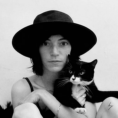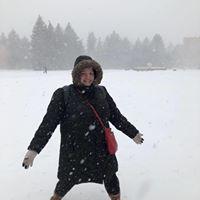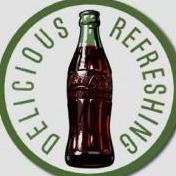-
Posts
129 -
Joined
Reputation Activity
-
 Karou reacted to HardyBoy in Applications 2019
Karou reacted to HardyBoy in Applications 2019
I just found out that I got into UC Davis. Doing a happy dance!
-
 Karou got a reaction from kgower in Applications 2019
Karou got a reaction from kgower in Applications 2019
Just got word that I got into Duke! It's my first choice, and I'm so incredibly excited!! So if you see that admit on the results page, it's mine.
I'm a bit shy about sharing my focus/POI on here because anonymity etc, but if you've applied to Duke and you're curious, feel free to PM me!
-
 Karou got a reaction from Jericho in Applications 2019
Karou got a reaction from Jericho in Applications 2019
Just got word that I got into Duke! It's my first choice, and I'm so incredibly excited!! So if you see that admit on the results page, it's mine.
I'm a bit shy about sharing my focus/POI on here because anonymity etc, but if you've applied to Duke and you're curious, feel free to PM me!
-
 Karou got a reaction from VAZ in Applications 2019
Karou got a reaction from VAZ in Applications 2019
Just got word that I got into Duke! It's my first choice, and I'm so incredibly excited!! So if you see that admit on the results page, it's mine.
I'm a bit shy about sharing my focus/POI on here because anonymity etc, but if you've applied to Duke and you're curious, feel free to PM me!
-

-
 Karou reacted to HardyBoy in Applications 2019
Karou reacted to HardyBoy in Applications 2019
Congratulations, @Karou!!! May this be the first of many happy posts.
-
 Karou got a reaction from Balleu in Applications 2019
Karou got a reaction from Balleu in Applications 2019
Just got word that I got into Duke! It's my first choice, and I'm so incredibly excited!! So if you see that admit on the results page, it's mine.
I'm a bit shy about sharing my focus/POI on here because anonymity etc, but if you've applied to Duke and you're curious, feel free to PM me!
-
 Karou got a reaction from joebobthebumbo in Applications 2019
Karou got a reaction from joebobthebumbo in Applications 2019
Just got word that I got into Duke! It's my first choice, and I'm so incredibly excited!! So if you see that admit on the results page, it's mine.
I'm a bit shy about sharing my focus/POI on here because anonymity etc, but if you've applied to Duke and you're curious, feel free to PM me!
-
 Karou got a reaction from elx in Applications 2019
Karou got a reaction from elx in Applications 2019
Just got word that I got into Duke! It's my first choice, and I'm so incredibly excited!! So if you see that admit on the results page, it's mine.
I'm a bit shy about sharing my focus/POI on here because anonymity etc, but if you've applied to Duke and you're curious, feel free to PM me!
-
 Karou got a reaction from dr. t in Applications 2019
Karou got a reaction from dr. t in Applications 2019
Just got word that I got into Duke! It's my first choice, and I'm so incredibly excited!! So if you see that admit on the results page, it's mine.
I'm a bit shy about sharing my focus/POI on here because anonymity etc, but if you've applied to Duke and you're curious, feel free to PM me!
-
 Karou got a reaction from ashiepoo72 in Applications 2019
Karou got a reaction from ashiepoo72 in Applications 2019
Just got word that I got into Duke! It's my first choice, and I'm so incredibly excited!! So if you see that admit on the results page, it's mine.
I'm a bit shy about sharing my focus/POI on here because anonymity etc, but if you've applied to Duke and you're curious, feel free to PM me!
-
 Karou got a reaction from AnUglyBoringNerd in Applications 2019
Karou got a reaction from AnUglyBoringNerd in Applications 2019
Just got word that I got into Duke! It's my first choice, and I'm so incredibly excited!! So if you see that admit on the results page, it's mine.
I'm a bit shy about sharing my focus/POI on here because anonymity etc, but if you've applied to Duke and you're curious, feel free to PM me!
-
 Karou reacted to Sigaba in Applications 2019
Karou reacted to Sigaba in Applications 2019
Rather than attempting to read the tea leaves of a process that is now beyond one's control, please consider the benefits of managing your stress by
assuming that you're going to get into a program somewhere and somewhen; accepting the fact that all of you are already historians because you are focused on the study of change over time; understanding that the majority of what you learn as a historian will be self-taught (for better and for worse); realizing that nothing is stopping you from learning more about the craft while you wait for the results of a truly grueling process with moments of pain and even despair. Even if you don't know which continent or century or nation or event or dynamic will be at the center of your endeavors, there are still shelves and shelves of books, monographs, periodicals, and unpublished works that are waiting for you. The essential reads, the books that change everything, the works "one ignores at one's peril," the literary masterpieces, the methodological trainwrecks, the prize winners, the memoirs, biographies, and autobiographies of key academics--they are waiting for you.
Believe it or not, in a couple of years, many of you will be dealing with stress and intellectual challenges and personal crises that will make you think of your present circumstances with wistful yearning. Now is a good time to start building up the skills and resources and resilience that will serve you well in those ghastly moments of terror that come when preparing for qualifying exams.
-
 Karou reacted to elx in Applications 2019
Karou reacted to elx in Applications 2019
Ah, the stories from people who get their Dec deadline rejection in August are the worst, that must be terrible!
-
 Karou reacted to TMP in Applications 2019
Karou reacted to TMP in Applications 2019
That you've got the grit just like them. Can your passion, persistence, and work ethic show themselves in your application? They're looking for deep commitment to the discipline and to work with students who ask similar research questions as they do. They want to be able to run their graduate seminars and expect their students to enroll and enjoy the questions and readings being engaged. Remember, a significant portion of your exam list readings will be "suggested" by the POI and the rest of the committee. To make through the grueling process leading up to the exams, the students better enjoy reading and studying many of the works that their professors find valuable.
-
 Karou got a reaction from elx in Applications 2019
Karou got a reaction from elx in Applications 2019
I have not been particularly stressed out as to whether I'll be admitted or not (I've decided to be zen about that, because there's nothing I can do about it at this stage anyway, whatever is going to happen will happen regardless of whether I drive myself crazy about it or not), but I'm getting incredibly impatient to know what the future holds for me!
I'm sorry you're both so anxious, and I'll spare you the clichéd advice of trying to think about something else, but I hope you find some way to distract/occupy yourself in the coming weeks and find some peace of mind. Also, I wouldn't get too worried about not having heard anything yet, it is my understanding that most History programs don't send out decisions this early. That still leaves us in limbo, but at least we know it's nothing out of the ordinary. I'm hoping to have heard from most schools by mid-February, but that may be a little optimistic.
-
 Karou got a reaction from fordlandia in Applications 2019
Karou got a reaction from fordlandia in Applications 2019
I have not been particularly stressed out as to whether I'll be admitted or not (I've decided to be zen about that, because there's nothing I can do about it at this stage anyway, whatever is going to happen will happen regardless of whether I drive myself crazy about it or not), but I'm getting incredibly impatient to know what the future holds for me!
I'm sorry you're both so anxious, and I'll spare you the clichéd advice of trying to think about something else, but I hope you find some way to distract/occupy yourself in the coming weeks and find some peace of mind. Also, I wouldn't get too worried about not having heard anything yet, it is my understanding that most History programs don't send out decisions this early. That still leaves us in limbo, but at least we know it's nothing out of the ordinary. I'm hoping to have heard from most schools by mid-February, but that may be a little optimistic.
-
 Karou reacted to OHSP in Applications 2019
Karou reacted to OHSP in Applications 2019
Programs anticipate these changes. The other day an advisor was like "what did you say you were going to do in your SoP again" and then we laughed together about how terrible an idea it was--honestly just worry about these things once you're in the program. You can't know in advance what you're going to end up doing and/or who'll you end up working with, and if the issue is as minor as preferring to work with a person you mentioned by name but didn't specifically mention wanting as the primary advisor, you'll be fine.
-
 Karou got a reaction from elx in Applications 2019
Karou got a reaction from elx in Applications 2019
I received it as well. To be honest, I didn't think much of it, I assumed it was standard procedure and that everyone who applied received it. Not to rain on anyone's parade, perhaps it does mean something, who knows!
I have not posted here in ages, but I have been reading the thread, and I hope everyone's feeling relaxed throughout the waiting process! On my end, I have applied to 8 programs, and have been thinking up some pretty solid back-up plans in case I don't get in, so I'm feeling good about whatever comes next either way. Best of luck to you all!
-
 Karou reacted to AP in Lifehacks & Study Tools
Karou reacted to AP in Lifehacks & Study Tools
Ok, here are a couple of things I tried and worked for me:
1) Use the coursework years to build and consolidate a good social network. People you can cry with, and work with, and watch games with.
2) During exams, I gave myself the gift of learning something new. I picked up a new sport and went twice or thrice a week. It was MY moment away from books or screens, outside, and doing learning something besides the historiography of plantations.
3) Life hacks:
Save your work all the time in an external drive AND the cloud. Trust me. Embrace meal prep once a week. Attend events with free food. Use campus resources. You already "pay" for them. Do not underestimate the power of a good break. 4) Exercise helps fight depression and sleep issues. (In addition, do not underestimate a good sleep. If you have problems sleeping, consult with your doctor. I speak from experience).
5) Grad school is just a job, but it is very personal because you give up a lot to be there. Do not hesitate to ask for help. No one is expecting you (or anyone) to have all the answers, otherwise campuses wouldn't have so many resources. Use the reference librarians, your senior graduate students, support services, etc.
6) Study tools: I don't know your field but for taking notes I use OneNote, for citations I use Zotero, and for writing I use Scrivener. I also carry around a small notebook where I write down random things that I think of as I write. Eg: Look for three references on X.
All the best!
-
 Karou reacted to dr. t in Applications 2019
Karou reacted to dr. t in Applications 2019
I think we get a lot of people coming to the forum like this (it's something of my story, too), so let me give two things.
1) GREs don't really matter, but AW matters the least. I myself had a 4.5 and asked a DGS if that would hurt me. His response: "Uh, is that the thing that's out of 6?"
2) I failed out of my undergraduate... twice. My GPA from that experience was 0.86. Here's how I handled it on my writing sample. Notice how it's a pivot, and how it launches aids rather than disrupts the narrative.
"The further I progress in my historical study, the more firmly I hold to the conviction that calling something a `first cause' simply means that one has failed to fully understand the events which preceded it. Still, I can put my finger on the precise moment at which I began to take a professional interest in medieval history. During a survey course on the high and late Middle Ages, I was given a handout with a variety of medieval quotations about women. The second of these read: ``We... recognizing that the wickedness of women is greater than all the other wickedness of the world and that the poison of asps and dragons is more curable and less dangerous to men than the familiarity of women, have unanimously decreed... that we will on no account receive any more sisters... but avoid them like poisonous animals.'' I was struck not only by the misogyny, but also by the practical implications contained within the passage. It painted a portrait of female sexual depravity which was primitive, animalistic, and universal. Yet I knew that the western Church held that every person possessed free will. How did the quote's author reconcile these two seemingly disparate truths to himself or to others? This question became a term paper, the term paper became a senior thesis, and down the rabbit hole I went.
Ten years earlier, if someone asked me what I wanted to be, they would have received an unequivocal answer: an engineer. Throughout high school, I had been an active participant in the school's robotics team, and I had advanced through the standard mathematics curriculum and onto subjects such as linear algebra and multivariate calculus. In 2004, I entered the mechanical engineering program at the University of Massachusetts, Amherst. I quickly received a rather rude awakening. The courses were esoteric, dealing only in abstract concepts and rote memorization, and we were given no opportunity to explore, tinker, or build. I quickly lost interest and direction. My grades declined rapidly, and I was forced to leave the university in 2007. Returning home, I took a job at the local Trader Joe's and went to work putting myself back in order. I used my job to finance a career as an amateur fencer for several years, competing in national and international tournaments, but eventually, the daily grind of customer service took its toll. I was still unsure precisely what I wanted to do in life, but I was sure that, whatever it was, it did not involve shifts that began at five in the morning. I have always had a passing fascination with what I would now call popular medievalisms---Tolkien, the Arthurian legends, and Disney's Robin Hood, to name a few---so when I saw that the Harvard University Extension School, Harvard's night school, was offering a course on medieval warfare and the crusades, I enrolled, thinking it would be a way to rekindle my academic interest. It did. For the first time, I had fun in a college class. The following semester, I enrolled at the Extension School as a degree-seeking student, signed up for the survey course, and received that decisive handout.
The Extension School offered me a second chance at academic success. There, in addition to my history coursework, I was able to improve my Latin and French, finding a new interest in these languages as their utility to my studies became clear. Once I had exhausted the Extension School's medieval course offerings, I applied and was accepted to Harvard's Special Student Program. Through the SSP, I was able to take the regular daytime course offerings at Harvard in subjects such as paleography, German, and historiography. It was through this program that I first took courses with Dr. Beverly Kienzle, Dr. William Stoneman, and Dr. Michael McCormick, all of whom have been my mentors and advisers. Shortly before my graduation in 2013, I presented my undergraduate thesis, advised by Dr. Kienzle, ``Holy Women and Submission to the Divine: Free Will, Gender, and Sanctity in Medieval Europe, ca. 1100--1300,'' to the undergraduate session at the International Congress for Medieval Studies at Kalamazoo, MI. I began my master's degree in the History of Christianity at Harvard Divinity School the following fall.
At the Divinity School, I have been able to both refine my academic interests and explore new ground. Through coursework and independent study, I have greatly strengthened my research, linguistic, and paleographic skills. However, my interest in mathematics and computers never entirely went away, leading me to become deeply involved in the digital humanities. I participated in Harvard's first graduate seminar on digital history in which I received hands-on experience in crowd-sourced projects, social network theory, and `popular' history. With Dr. McCormick's encouragement, I first became a research assistant and then the managing editor of his \textit{Digital Atlas of Roman and Medieval Civilization}, a project which seeks to map archaeological, natural, and social data for the late Roman and Medieval periods. These experiences have not only taught me how to manage cooperative research projects, but also how to incorporate diverse methods and sources of information not frequently utilized in historical study, such as spatial and statistical analysis and climate data, into my research. I have used social network theory to examine the political role of a monastery with few surviving documents, and I am writing a paper on the use of quantitative analysis of style in Latin texts as a means of investigating questions of authorship. Other pieces of my work follow more traditional models: my first publication, a codicological examination of a copy of Eadmer's Vita Anselmi, is currently receiving final revisions. However, the majority of my time has been spent studying a collection of thirteenth-century sermons or collationes preached by the monks of the Cistercian monastery of Foigny, which I am translating for publication. It is through my study of Foigny and its sermons that I first began to be suspicious of monastic claims of stability and isolation, the central topic I will address in my doctoral studies."
-
 Karou reacted to Sigaba in Learning how to ask and answer historical questions
Karou reacted to Sigaba in Learning how to ask and answer historical questions
@Karou IMO, using physical copies increases opportunities for serendipity. The front and back matter, the advertisements, the physical dimensions of a journal, paper, and font size can provide opportunities for additional insights that lead to more questions.
For the same reason, at a library or bookstore, I will put my eyes (if not hands) on as many books as possible.
The same goes for going through a digital catalog. Some years ago, a university library had a record for Upton and the Navy. This was a typo: the work in question was Upton and the Army. The mistake prompted questions that remain either under-explored and unasked by American military and naval historians.
-
 Karou reacted to JKL in Learning how to ask and answer historical questions
Karou reacted to JKL in Learning how to ask and answer historical questions
I'll tackle this one. First, your philosophy training will probably lead you to ask big questions. And it's fine to ask the big questions. They need to be addressed. But historical research asks a particular question and uses primary sources to make an argument. The thesis is the argument they're making. Primary sources are sources from the period you are analyzing. (You can call these original documents, or things you examine when you want to do history.) Secondary sources on the other hand are sources that analyze the period or event after the fact. The Declaration of Independence and Locke's Two Treatises of Government are primary sources, but a book (or thesis or article) that asks how Locke influenced Jefferson's legal/political philosophy would be a secondary source. Historiography -- a fancy word that you'll read, hear, and have to use quite often -- is the history of history, that is, how historians have written about the past and what arguments have already been made about your topic. If you're asking how Locke influenced Jefferson's legal philosophy, then you need to read what's already been written about that question. Your argument can be entirely new, or you can disagree with an existing argument provided you have convincing evidence from primary sources. Historical research is therefore an ongoing debate involving a range of interpretations. This is historiography. If ten historians examine the same document, they'll likely interpret it ten different ways. This is doing history. And as I hope you'll find, it's a lot of fun to do.
As for readings, just remember that you don't have to read the book from cover to cover. You can't. You don't have enough time. If the book is assigned to be discussed in class, then just read the introduction to find the thesis (also called the argument), methodology, and structure. Then read the conclusion, and then you're done. (This is useful: http://forum.thegradcafe.com/topic/30968-reading-tips-for-graduate-students-in-history-programs/.) But if you're reading a book or article that you'll use in your thesis, then you'll of course want to read more of it.
Anyway, I hope this was helpful. To echo what AP said a few posts earlier, if you're in an interdisciplinary program, then you won't apply historical methodology all the time. This is one methodology among many that you'll probably encounter.
-
 Karou reacted to Sigaba in Learning how to ask and answer historical questions
Karou reacted to Sigaba in Learning how to ask and answer historical questions
IMO, because professional academic history is so compartmentalized and due to your specific circumstances, I think a running start may be a better (and more challenging) way to go, especially given your area of interest and experience level relative to some of your classmates.
I recommend that you select three to five academic journals related to your area of interest and spend time going through 10+ years' of volumes. I recommend using physical copies rather than digital versions. Try to put your eyes on every article, historiographical essay, extended reviews, presidential address, and round table. Read very selectively those pieces that strike you as vitally important and/or very interesting. As @DGrayson points out, you'll see a variety of methods used but you will start to see patterns/rhytms in how historians present the questions they address within the contexts of ongoing debates.
I cannot offer much in making specific recommendations IRT journals for you to select. One article that may help you get your arms around your field is Mark T. Berger, "Civilising the South: The US Rise to Hegemony in the Americas and the Roots of 'Latin American Studies' 1898-1945," Bulletin of Latin American Research ,Vol. 12, No. 1 (Jan., 1993), pp. 1-48 available at http://www.jstor.org/stable/3338811 .
What follows is a list of the 54 journals related to Latin American studies available at Jstor.
Afro-Hispanic Review 1982 - 2013 The Americas 1944 - 2012 Anales de la literatura española contemporánea 1981 - 2013 Anales de la narrativa española contemporánea 1979 - 1980 Journal of Spanish Studies: Twentieth Century 1973 - 1980 Anales de la novela de posguerra 1976 - 1978 Anuario de Estudios Centroamericanos 1974 - 2013 Arizona Journal of Hispanic Cultural Studies 1997 - 2013 Bulletin of Latin American Research 1981 - 2006 Canadian Journal of Latin American and Caribbean Studies / Revue canadienne des études latino-américaines et caraïbes 1984 - 2010 NS, NorthSouth 1976 - 1983 Caravelle (1988-) 1988 - 2013 Cahiers du monde hispanique et luso-brésilien 1966 - 1987 Caravelle (1963-1965)1963 - 1965 Caribbean Studies1961 - 2015 Chasqui1972 - 2013 Chiricú Journal: Latina/o Literatures, Arts, and Cultures1976 - 2017 Confluencia1985 - 2013 Cuban Studies1986 - 2015 Desarrollo Económico1961 - 2015 Diálogos: Artes, Letras, Ciencias humanas1964 - 1985 Economía2000 - 2015 Estudios Demográficos y Urbanos1986 - 2017 Demografía y economía1967 - 1984 Estudios Económicos1986 - 2016 Demografía y economía1967 - 1984 European Review of Latin American and Caribbean Studies / Revista Europea de Estudios Latinoamericanos y del Caribe1989 - 2016 Boletín de Estudios Latinoamericanos y del Caribe1974 - 1989 Boletín de Estudios Latinoamericanos1970 - 1973 Boletín Informativo Sobre Estudios Latinoamericanos en Europa1965 - 1969 Foro Internacional1960 - 2017 Guaraguao1996 - 2013 Hispamérica1972 - 2013 Hispania1917 - 2015 The Hispanic American Historical Review1918 - 1999 Hispanic Review1933 - 2013 Hispanófila1957 - 2013 Historia Mexicana1951 - 2017 Iberoamericana (2001-)2001 - 2014 Ibero-amerikanisches Archiv1924 - 2000 Notas: Reseñas iberoamericanas. Literatura, sociedad, historia1993 - 2000 Iberoamericana (1977-2000)1977 - 2000 International Journal of Cuban Studies2008 - 2017 INTI1974 - 2013 Journal of Haitian Studies1995 - 2015 Journal of Latin American Geography2002 - 2013 Yearbook (Conference of Latin Americanist Geographers)1984 - 2002 Proceedings of the Conference of Latin Americanist Geographers1981 - 1983 Publication Series (Conference of Latin Americanist Geographers)1971 - 1980 Journal of Latin American Studies1969 - 2011 Latin American Antiquity1990 - 2014 Latin American Literary Review1972 - 2013 Latin American Perspectives1974 - 2013 Latin American Politics and Society2001 - 2013 Journal of Interamerican Studies and World Affairs1970 - 2000 Journal of Inter-American Studies1959 - 1969 Latin American Research Review1965 - 2013 Luso-Brazilian Review1964 - 2011 Mexican Studies/Estudios Mexicanos1985 - 2015 Mexicon1979 - 2014 Nueva Revista de Filología Hispánica1947 - 2016 NWIG: New West Indian Guide / Nieuwe West-Indische Gids1992 - 2012 Nieuwe West-Indische Gids / New West Indian Guide1960 - 1991 Christoffel1955 - 1958 Vox Guyanae1954 - 1959 De West-Indische Gids1919 - 1959 Portuguese Studies1985 - 2017 Problemas del Desarrollo1969 - 2013 Reis: Revista Española de Investigaciones Sociológicas1978 - 2015 Revista española de la opinión pública1965 - 1977 Revista Canadiense de Estudios Hispánicos1976 - 2015 Reflexión1972 - 1974 Revista de Crítica Literaria Latinoamericana1975 - 2014 Revista de Historia de América1938 - 2011 Revista Hispánica Moderna1934 - 2013 Revista Internacional de Lingüística Iberoamericana2003 - 2014 Revista Mexicana de Sociología1939 - 2013 Social and Economic Studies1953 - 2013 The University of Miami Inter-American Law Review1984 - 2014 Lawyer of the Americas1969 - 1984 -
 Karou reacted to DGrayson in Learning how to ask and answer historical questions
Karou reacted to DGrayson in Learning how to ask and answer historical questions
I've also struggled with this question, because there really is no clear answer. There are so many different ways to approach history that one clear methodology isn't usually possible. For me, I've found it helpful when looking through primary sources to look for "weird" things--something that doesn't make sense to you. Is it weird, given what you know, for an author to be talking about something in a way other than what you expect? Research more into that. This method is how I've arrived at my MA thesis project. From an inter-disciplineary standpoint, see how the questions you would normally ask or the topics that you would normally study are handled in History. When all else fails, imitation (in terms of methodology) is the highest form of flattery. Read secondary sources, find one or two that you really liked, and look at how they structured their research. Hope this helps!








